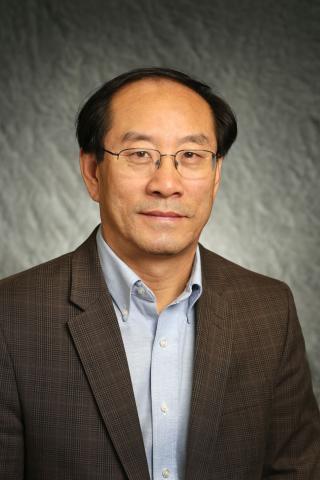Meet Outstanding Doctoral Mentor Dr. Boyun Guo
Dr. Boyun Guo is an endowed professor in petroleum engineering and serves as the director of the Center for Optimization of Petroleum Systems. 
He has been named a 2019-2020 Outstanding Doctoral Mentor by the Office of the Vice President for Research, Innovation, and Economic Development.
His research interests focus on oil and gas well construction, production systems, and well testing. He is internationally recognized for his pioneering work on product recovery using both primary and enhanced recovery methods.
His work with the Center for Optimization of Petroleum Systems focuses on technology developments that improve the success of product discovery, increase access to and the improved collection of petroleum products (oil and natural gas), and extend the life of existing fields while reducing costs. The Center also ensures that these activities do not cause ecological damage.
Guo's career in oil and gas began in 1982 while working for a drilling company in his native China. After positions as a researcher at the New Mexico Institute of Mining and Technology, and as a petroleum engineer in Houston, he joined the UL Lafayette faculty in 2000.
In his work with graduate students, Guo ensures they receive the step-by-step guidance they need to progress through the program.
“I assign research topics to students in the very beginning of their enrollment, advise courses relevant to their research topics, and encourage students to timely publish their research papers,” he says.
Guo’s student research assistants carry out research tasks based on their educational background and skill set.
The PhD in Systems Engineering program at UL Lafayette builds upon the research-based learning experience associated with most Engineering Ph.D. programs by adding the additional learned skill set of Systems Engineering principles.
Systems Engineering is geared toward the rapid design and development of large and complex systems. The integration of specialty and subspecialty groups of the engineering disciplines drives a structured development process that proceeds from concept to production to operation.
Graduates leave the program with a strong specialized knowledge appropriate for a traditional engineering Ph.D. coupled with expertise in the application of systems theory toward solving complex problems within their specialty.
The concentrations offered across chemical engineering, civil engineering, electrical engineering, mechanical engineering, and petroleum engineering provide graduates with more opportunities in the job market, Guo notes.
Alumni have also gone on to jobs in academia, which Guo owes to the strong record of research and publications in the doctoral program.
He says regular check-ins are key to the success of graduate students as they move through the program and prepare for their careers.
“I advise students to actively communicate with their supervisors to increase work efficiency so that they can make quick progress in meeting work expectations in and after graduate school,” he says.
Guo has continued to offer technical advice to oil and gas companies since joining the University, and his contributions have earned awards from regional, national and international chapters of the Society of Petroleum Engineers. His ties to the petroleum industry give him important insight into the political and economic dynamics shaping the field, which in turn fuels his scholarship and teaching.
Graduate students are also a key source of inspiration in his work, he says, noting that students’ questions can lead to new research ideas.
“Working with my students in conducting research is a process of training for students but also a process of mind-sharpening for the advisor,” he says.